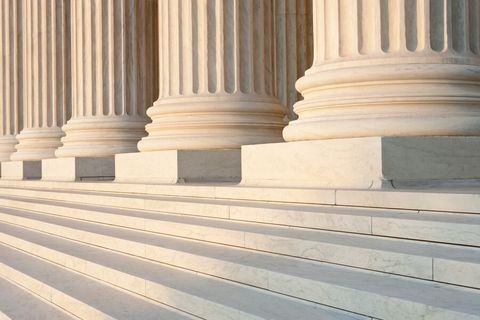Insurers’ COVID-19 Notepad: What You Need to Know Now - Week of June 27, 2022
Client Alert | 2 min read | 06.27.22
Courts Dismiss COVID-19 Business Interruption Claims
On June 24, 2022, the New Jersey Appellate Division, in a per curiam decision, reversed and remanded a trial court’s denial of a motion to dismiss an Atlantic City casino’s COVID-19 business interruption complaint. The court concluded that as “prevalent caselaw maintains, the COVID-19 virus’s presence in [the insured’s] air and on its surfaces did not physically alter the property’s physical structure such that it qualifies as a direct physical loss of or damage to [the insured’s] property.” Order at 36. The court pointed out that the insured “would have been able to continue operating its casino and performance venue without interruption had the [executive orders] not been issued.” Id. at 37. It said the coronavirus “did not preclude [the insured] from using its business for all purposes, and as soon as the executive orders allowed the casino to operate, it resumed all its activities, “even while the COVID-19 virus was still circulating.” Id. at 38. The case is AC Ocean Walk, LLC v. American Guarantee and Liability Insurance Co.
On June 16, 2022, the district court for the District of New Jersey granted AmGuard Insurance Company’s motion to dismiss a restaurant operator’s COVID-19 business interruption claim and denied the restaurant operator’s motion to remand to state court. The court found that the policy’s virus exclusion plainly applied, as the “the plain text of the Policy precludes Plaintiff from recovering any losses caused by COVID-19 or the Executive Orders.” Order at 20. The court further rejected the plaintiff’s regulatory estoppel argument, finding that it “failed to demonstrate any inconsistency between insurance industry representations to regulators and Defendant’s interpretation of the Virus Exclusion.” Id. at 21. The case is Mark Daniel Hospitality LLC v. AmGuard Ins. Co.
New Business Interruption Suits Against Insurers:
A hotel operator sued RSUI Indemnity Company in Georgia state court (Fulton County) for breach of contract, breach of the covenant of good faith and fair dealing, violations of O.C.G.A. § 33-6-3, bad faith insurance practices under O.C.G.A. § 33-4-7, and civil conspiracy. The “all risk” policy allegedly provides business interruption and civil authority coverage. Complaint at ¶¶ 3.12, 3.13. The Complaint alleges that “[a]s a direct result of COVID-19 and the Closure Orders, issued directly because of COVID-19, physical loss and damage to property, and to prevent further immediately impending physical damage to property, Plaintiffs have suffered direct physical loss and damage or destruction, and a physical alteration to the property that led to lost and/or limited functionality of the Covered Properties.” Id. at ¶ 3.39. The case is TRT Holdings, Inc. et al. v. RSUI Indem. Co.
Contacts
Insights
Client Alert | 2 min read | 11.14.25
Claim construction is a key stage of most patent litigations, where the court must decide the meaning of any disputed terms in the patent claims. Generally, claim terms are given their plain and ordinary meaning except under two circumstances: (1) when the patentee acts as its own lexicographer and sets out a definition for the term; and (2) when the patentee disavows the full scope of the term either in the specification or during prosecution. Thorner v. Sony Comput. Ent. Am. LLC, 669 F.3d 1362, 1365 (Fed. Cir. 2012). The Federal Circuit’s recent decision in Aortic Innovations LLC v. Edwards Lifesciences Corp. highlights that patentees can act as their own lexicographers through consistent, interchangeable usage of terms across the specification, effectively defining terms by implication.
Client Alert | 6 min read | 11.14.25
Microplastics Update: Regulatory and Litigation Developments in 2025
Client Alert | 6 min read | 11.13.25





